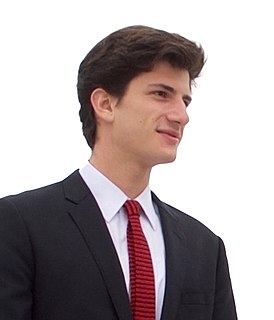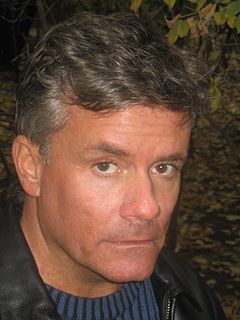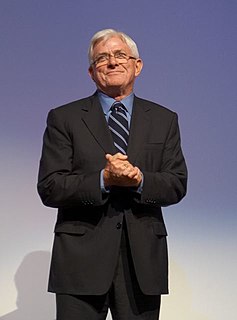A Quote by Rajneesh
The world is not religious because religion is imposed upon us. The parents are in a hurry to impose; the church, the state, the country - everybody is in a hurry to impose a certain religion on the child. How foolish! How stupid! Religion needs maturity, great understanding, before one can choose.
Related Quotes
The separation of church and state is necessary partly because if religion is good then the state shouldn't interfere with the religious vision or with the religious prophet. There must be a realm of truth beyond political competence, that's why there must be a separation of churches, but if religion is bad and a bad religion is one that gives an ultimate sanctity to some particular cause. Then religion mustn't interfere with the state - so one of the basic Democratic principles as we know it in America is the separation of church and state.
What is especially important is addressing the question of how religion can be enforced through political means and what can be done to create a political environment that, on the one hand, acknowledges the role of religion in society, while on the other hand does not impose one religion on the populace at the expense of all others.
As you know, the separation of church and state is not subject to discussion or alteration. Under our Constitution no church or religion can be supported by the U.S. Government. We maintain freedom of religion so that an American can either worship in the church of his choice or choose to go to no church at all.
Kennedy believed in religious liberty and the separation of church and state. He did not believe in the right of elected officials to impose their religious views on others. He was the first Catholic ever elected president, and he spent much of the 1960 campaign defending his religion and assuring voters he would not take orders from the Vatican.
Religion should be subject to commonsense appraisal and rational review, as openly discussible as, say, politics, art and the weather. The First Amendment, we should recall, forbids Congress both from establishing laws designating a state religion and from abridging freedom of speech. There is no reason why we should shy away from speaking freely about religion, no reason why it should be thought impolite to debate it, especially when, as so often happens, religious folk bring it up on their own and try to impose it on others.
How can you have the religion of the sovereign be the religion of the state if the sovereign belongs to many religions? And it's at that point, I think, historically, that you start to see people saying maybe the state should not associate itself with any religion. Maybe there shouldn't be any official religion.
The First Amendment...does not say that in every respect there shall be a separation of Church and State....Otherwise the state and religion would be aliens to each other - hostile, suspicious, and even unfriendly....The state may not establish a 'religion of secularism' in the sense of affirmatively opposing or showing hostility to religion, thus preferring those who believe in no religion over those who do believe.
Today courts wrongly interpret separation of church and state to mean that religion has no place in the public arena, or that morality derived from religion should not be permitted to shape our laws. Somehow freedom for religious expression has become freedom from religious expression. Secularists want to empty the public square of religion and religious-based morality so they can monopolize the shared space of society with their own views. In the process they have made religious believers into second-class citizens.
I was raised in a religious home. It was unreasonable enforced religion that turned me off it. It was a joyless, unpleasant, stupid, barbaric thing when I was a child and I've never gotten over that feeling. If you're talking about religion it's one thing; I don't hold Jewish religion with any more seriousness than I would any other.





































